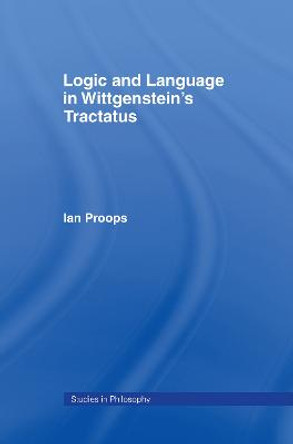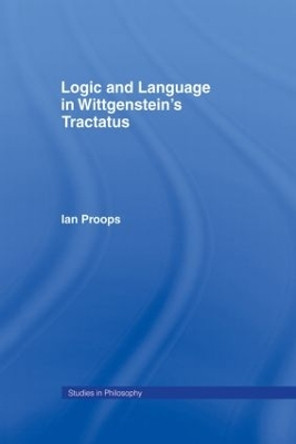Discussion of Wittgenstein's Tractatus is currently dominated by two opposing interpretations of the work: a metaphysical or realist reading and the 'resolute' reading of Diamond and Conant. Marie McGinn's principal aim in this book is to develop an alternative interpretative line, which rejects the idea, central to the metaphysical reading, that Wittgenstein sets out to ground the logic of our language in features of an independently constituted reality, but which allows that he aims to provide positive philosophical insights into how language functions. McGinn takes as a guiding principle the idea that we should see Wittgenstein's early work as an attempt to eschew philosophical theory and to allow language itself to reveal how it functions. By this account, the aim of the work is to elucidate what language itself makes clear, namely, what is essential to its capacity to express thoughts that are true or false. However, the early Wittgenstein undertakes this descriptive project in the grip of a set of preconceptions concerning the essence of language that determine both how he conceives the problem and the approach he takes to the task of clarification. Nevertheless, the Tractatus contains philosophical insights, achieved despite his early preconceptions, that form the foundation of his later philosophy. The anti-metaphysical interpretation that is presented includes a novel reading of the problematic opening sections of the Tractatus, in which the apparently metaphysical status of Wittgenstein's remarks is shown to be an illusion. The book includes a discussion of the philosophical background to the Tractatus, a comprehensive interpretation of Wittgenstein's early views of logic and language, and an interpretation of the remarks on solipsism. The final chapter is a discussion of the relation between the early and the later philosophy that articulates the fundamental shift in Wittgenstein's approach to the task of understanding how language functions and reveal the still more fundamental continuity in his conception of his philosophical task.
About the AuthorMarie McGinn is Professor Emeritus at the University of York.
ReviewsReview from previous edition A highly interesting contribution to the debate on Wittgenstein's philosophy... [McGinn] has done an important job in showing how a reading that accepts as its starting point Diamond's critique of the traditional interpretation is perfectly capable indeed, well positioned to describe the Tractatus as a contribution to logic and the philosophy of logic... with respect to its elucidation of the Tractatus' views on logic, McGinn's book is pretty much the book on Wittgenstein's early philosophy I always wanted to read as a student, but was never able to find... Happily, the book did not come too late for me, and it is certainly not only recommended reading for students. Not only did I learn a great deal from this book, but reading it was also a pleasure. * Oskari Kuusela, Notre Dame Philosophical Reviews *
There is much to like and admire about the way in which McGinn carries out [her] interpretation...[A] systematic account...which has much to recommend it. * Peter Hylton, Times Literary Supplement *
an excellent and highly original contribution ... one that it is hard to imagine being surpassed anytime soon. It makes for an illuminating and enjoyable read. * Edmund Dain, International Journal of Philosophical Studies *
Book InformationISBN 9780199568246
Author Marie McGinnFormat Paperback
Page Count 332
Imprint Oxford University PressPublisher Oxford University Press
Weight(grams) 522g
Dimensions(mm) 234mm * 156mm * 20mm







